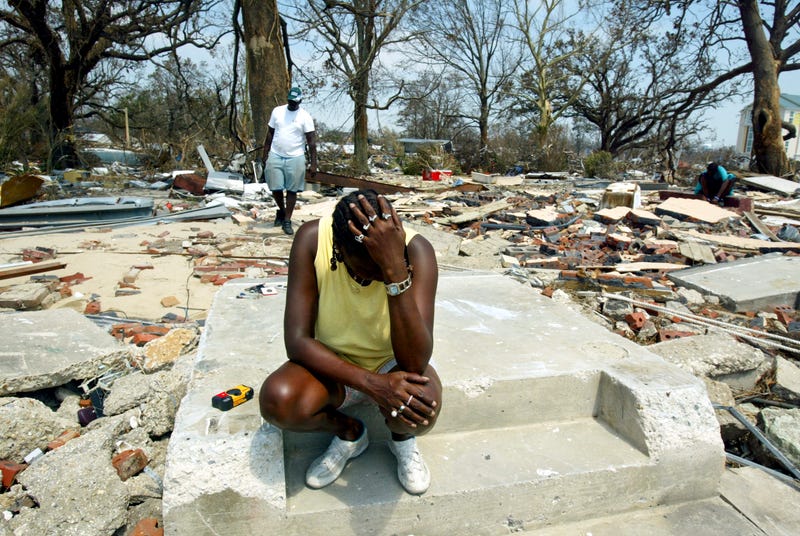IRONTON, LOUISIANA (1010 WINS) -- On this episode of "Beyond Black History Month," we speak with Audrey Trufant Salvant, a resident from Ironton, Louisiana who has been victimized and displaced by several hurricanes including Hurricane Katrina. Not only does she share her experience before the storm, but she describes the physical and mental anguish it's caused her since. Additionally we speak to 3 experts who have studied the longterm - and disproportionate - impact tropical storms and climate change have on the nation's Black community.
What you need to know:
• In August 2005, a destructive Category 5 Atlantic hurricane dubbed Hurricane Katrina Hurricane caused over 1,800 fatalities and $125 billion in damage to the states of Alabama, Louisiana, and Mississippi.
• According to the American Society of Civil Engineers, the city of New Orleans bore the brunt of the damage in Louisiana. By September of 2005, 80% of New Orleans was flooded, with some parts under 15 feet of water.
• Although the water eventually receded, the aftermath of the hurricane had longterm physical and mental effects on those who were lucky enough to survive.
What experts have found:
• A 2022 study revealed that in the span of 20 years, the death rate among survivovrs of tropical storms, cyclones, and hurricanes spiked 33.4 percent.
• In addition to the natural diseases that the disaster exposed victims to, the study attributes the increasing death rate to a multitude of factors including displaced people missing important doctor’s appointments and preventative screenings.
• It also acknowledges how neuropsychiatric disorders such as PTSD, depression, and anxiety eventually develop and contribute to the death rate.

Who suffers the most:
• A 2021 report published by the Environmental Protection Agency (EPA) acknowledged that communities of color were disproportionately impacted by climate change and its varying natural disasters.
What can be done:
• As climate change continues and these hurricanes occur more frequently, both activists and scientists are becoming more vocal about what survivors need.
Dr. Rebecca Schwartz, one of our guests in this episode, says, “Without [more] mental health support in place, those mental health symptoms are going to persist.”
• Audrey Trufant Salvant, who experienced Katrina firsthand, suggests that all victims of natural disasters should be treated equally, regardless of circumstance. “We’re all humans first,” she says.

